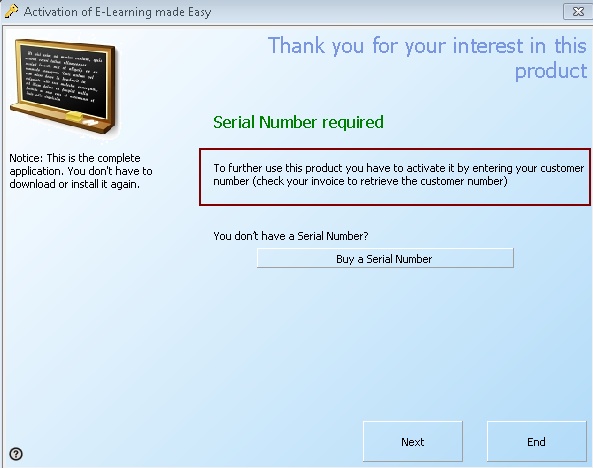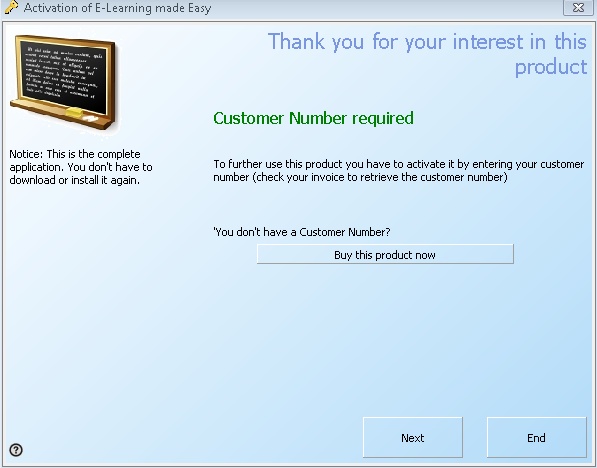
Licence Protector 5
The text on all screens and for each language can be changed. This function is ideal to change a few line of text but it cannot be used to add a new language.
To change a line of text, specify the language ID, a text ID and the new text.
Name |
SetCustomText |
||||||||||||||||
Purpose |
Checks if an entry (user, computer, item) is registered in a module |
||||||||||||||||
Params |
|
||||||||||||||||
Returncode |
|
||||||||||||||||
Sample |
bOk := lic.SetCustomText(2,613, ‘Activation by phone’);
|
||||||||||||||||
See also |
Change the text for each language
To change a line of text, you have to search in the language text file. A good idea is to search the English translation and then use this number to find the text in another language. You have to change the text for each language used by your application.
Example 1:
You want to change the following text in Danish language, which has language code 11. Search in language Code 2 = English language
20613, "Phone Activation"
To change the Danish translation
SetCustomText (11,613, 'Telefonaktivering')
Example 2:
You don't work with a Serial Number. Your unique ID is the customer number.
20657, "To further use this product you have to activate it by entering a Serial Number."
To change the English translation
SetCustomText (2,657,'To further use this product you have to activate it by entering your customer number (check your invoice to retrieve the customer number)')

Of course you can change all the other text like: Serial Number required to Customer Number required or Buy a Serial Number to Buy this product now
SetCustomText (2,603,'You don't have a Customer Number?')
SetCustomText (2,604,'Buy this product now')
SetCustomText (2,656,'Customer Number required')


Text followed by a $ sign may never be changed. It is a variable. Examples are $product or $days. The name of the variable is the same in all languages.
Example
20744, "This is an evaluation version. You can evaluate $product for another $days day(s)."
The characters \n insert a new line.

